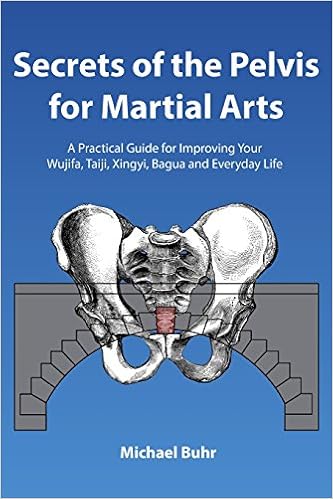I now realize that much of my struggle in learning Wujifa was an attempt to reconcile my earlier belief with a very down to earth, elegantly simple yet highly effective practice as I found in Wuijifa. Ironically, my belief about internal martial art skill development was counter-productive to my developing internal martial art skills.
In a recent Wujifa class, I asked my teacher about why this happens. His response was:
"In Wujifa, the first saying is 'You are where you are and that's where you start.' People have disconnects between their physical reality and mental belief systems. Certain belief systems will color the way they understand everything else. Wujifa doesn't contest that but asks people to come with an open mind or at least temporarily leave their belief system on the shelf so they can look at the functional realities of simple practices like standing (zhan zhuang). Wujifa looks first at the alignment of the feet, then the knees, then the pelvis and finally the shoulders and head. This kind of functional practice can yield a new understanding if the person is willing to temporarily set their biases aside.So, yeah, I had developed this really complex belief about internal martial arts over years of integrating a wide variety of ideas from many teachers, masters and scholars. I thought this was the right way to go. When I got to Wujifa, I was the guy trying to interpret the simple road map to town through using the complicated astrophysical map from the earth to the moon.
In Daoism, there is a saying that goes something like, 'The best place to hide the universe is in the universe'. This means that the answers are often very practical and right in front of you but you don't see them because you complicate them too much.
Copernicus and Galileo explained that the earth revolves around the sun. But if you are walking from your home to the next town, the aid of a flat map will serve you better than the astrophysics of planetary movement. Often, people don't make this distinction. And so, the problem with belief systems is that they can get too complicated and not provide practical maps for developing a functional, kinesthetic means of understanding."
Here's what I mean. The concept of "Qi flow". I have a belief built around these two words. But when I explore this concept outside of the usual stories and my belief, I learn that the word "Qi" is quite ambiguous; its meaning is often colored by the context in which it is used. So if I am locked into accepting the typical Western translation and my belief, then I may misinterpret a learning opportunity and not learn what is being plainly and unambiguously presented to me.
For instance, many years ago I was at a Chen Xiaowang Silk Reeling seminar. He adjusted my arm. "Qi flowing." He adjusted my arm again, "Qi not flowing". He adjusted my arm again. "Qi flowing." Understand?
He was graciously giving me the opportunity to experience, namely: This is the feeling of proper structural alignment through the arm and this is not. This is the feeling you're looking for and this is not. The words were merely pointers to help bring a feeling to my conscious awareness.
Unfortunately, I was so caught up in adding that simple experience of "Qi flow" to my belief system about "Qi flow" that I missed the simple lesson he was giving me. It took me ten years to learn this lesson.
I share this with the hope that you might learn from what I learned so you that don't make the same mistake and miss ten years of development.
Happy training everyone!


I think that among the first and may well be the hardest gate to pass through is to empty one's cup; to set aside what you've learned (or thought you've learned)so that you can do it the way your current teacher teaches. After all, why study under someone if you're not going to do it their way? If you think you know better than them, then why are you studying under them at all?
ReplyDeleteLater on, once you've grasped the current teacher's methods, then evaluating one's past training and perhaps integrating what you've learned then makes sense.